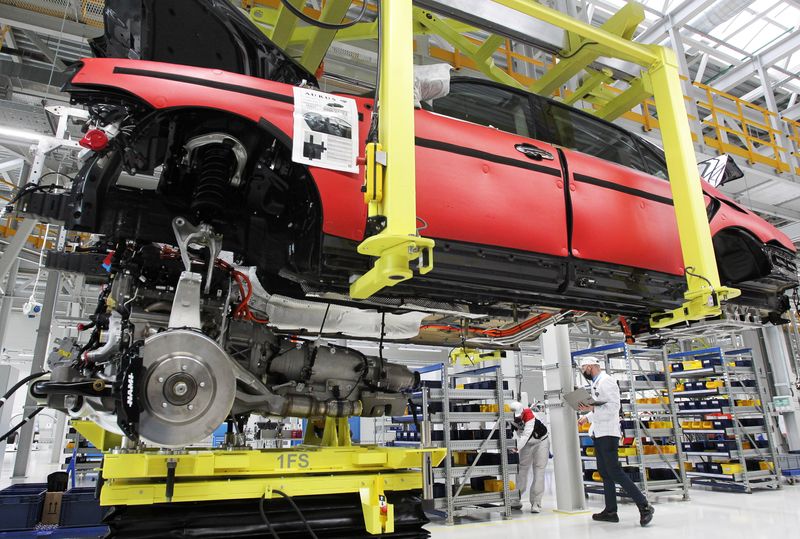(Reuters) - Activity across Russia's manufacturing sector increased marginally in November, a business survey showed on Monday, thanks to fresh expansions in outputs and new orders even as work backlogs depleted and firms cut workforce numbers.
The S&P Global Purchasing Managers' Index (PMI) for Russian manufacturing rose to 51.3 from 50.6 in October, moving further above the 50 level that separates expansion and contraction.
The uptick was partially attributed to a renewed rise in new sales, which ended a two-month decline, as demand conditions improved, although the pace of growth was slower than the series average.
Russia's significant spending on producing military equipment and weapons since invading Ukraine in February 2022 has buoyed a manufacturing sector that otherwise may have suffered as some countries shunned Moscow.
Gradually, Russian manufacturers have found new markets overseas. New export orders rose for the fourth consecutive month, though at a slower pace than in October.
Manufacturers registered a fresh decline in employment, the survey showed, with staff shortages creating challenges in replacing voluntary leavers.
Unemployment in Russia dropped to a record low of 2.3% last week, with widespread labour shortages hitting all areas of the economy.
Russian firms are also keeping an eye on the rouble, which tumbled to its weakest since March 2022 last week, leading the central bank to intervene with increased FX sales.
"Hikes in supplier prices and unfavourable exchange rate movements pushed up costs, according to panellists," S&P Global said.
Supply chain issues persisted.

"Delays to supplier deliveries continued in November, as rail and logistics routes were noted by firms as key factors behind longer lead times for inputs," S&P Global said.
Driven by optimism about new product development and investment in modernisation, business confidence increased to its highest since June, the survey showed.